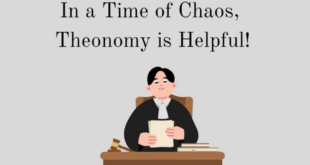Sola Gratia (grace alone) and Sola Fide (faith alone) go very hand in hand in this topic, yet however, they are not the same and deserve their own space. Who has the ability to say that someone is declared righteous in God’s sight? Who has the right and authority to choose people for salvation? What is the decisive factor in someone’s coming to know God? That is what is under question with “grace alone.” In the Reformation era, the Roman Catholic church had the ability to declare someone in right standing with God. But we see a different picture in Scripture.
What is grace?
Grace is the unmerited act of God to call dead people to come to life. We are not just sick and need an antibiotic, we are dead, and without a defibrillator to shock us back to spiritual life, we don’t come back to life. Ephesians 2:1-9 ESV:
And you were dead in the trespasses and sins in which you once walked, following the course of this world, following the prince of the power of the air, the spirit that is now at work in the sons of disobedience— among whom we all once lived in the passions of our flesh, carrying out the desires of the body and the mind, and were by nature children of wrath, like the rest of mankind. But God, being rich in mercy, because of the great love with which he loved us, even when we were dead in our trespasses, made us alive together with Christ—by grace you have been saved— and raised us up with him and seated us with him in the heavenly places in Christ Jesus, so that in the coming ages he might show the immeasurable riches of his grace in kindness toward us in Christ Jesus. For by grace you have been saved through faith. And this is not your own doing; it is the gift of God, not a result of works, so that no one may boast.
The saved had done nothing to deserve God’s acting (see What is the Gospel). God, the King of the universe, is in no way obligated to save sinful and rebellious creatures, yet He does save people, for His own glory. This Ephesians section wipes away all human boasting towards salvation and makes God the acting agent. A common question I ask is, did Lazarus have a choice in the matter when Jesus called Him back to life (John 11)? No, this was an effectual call: “Lazarus, come forth,” and he responds. He didn’t weigh out his options or think through it.
This was predicted in the Old Testament as well. Pay close attention to who the acting Agent is in these verses (God stating “I will” do something):
(God speaking) “Behold, the days are coming, declares the Lord, when I will make a new covenant with the house of Israel and the house of Judah, not like the covenant that I made with their fathers on the day when I took them by the hand to bring them out of the land of Egypt, my covenant that they broke, though I was their husband, declares the LORD. For this is the covenant that I will make with the house of Israel after those days, declares the LORD: I will put my law within them, and I will write it on their hearts. And I will be their God, and they shall be my people. And no longer shall each one teach his neighbor and each his brother, saying, ‘Know the LORD,’ for they shall all know me, from the least of them to the greatest, declares the LORD. For I will forgive their iniquity, and I will remember their sin no more.” Jeremiah 31:31-34 ESV
Is God obligated to act on behalf of sinful people? No. But He states that He will be the acting agent, not depending on Israel’s acting (and later we find that this includes the gentiles that are grafted into Israel- see Romans 9-11).
(God speaking) “Therefore say to the house of Israel, Thus says the LORD God: It is not for your sake, O house of Israel, that I am about to act, but for the sake of my holy name, which you have profaned among the nations to which you came. And I will vindicate the holiness of my great name, which has been profaned among the nations, and which you have profaned among them. And the nations will know that I am the LORD, declares the LORD God, when through you I vindicate my holiness before their eyes. I will take you from the nations and gather you from all the countries and bring you into your own land. I will sprinkle clean water on you, and you shall be clean from all your uncleannesses, and from all your idols I will cleanse you. And I will give you a new heart, and a new spirit I will put within you. And I will remove the heart of stone from your flesh and give you a heart of flesh. And I will put my Spirit within you, and cause you to walk in my statutes and be careful to obey my rules. Ezekiel 36:22-27 ESV
In these two passages prophesying the New Covenant that was to come in Christ, who is the acting Agent? Do you see how big this is? God is not dependent on human beings. God is totally unhinged to be able to act as He does. When He does this, it’s with perfection (Exodus 33:18-19).
The Importance of Grace
Your perspective on God’s grace matters. Grace knocks out human boasting and gives glory to God, the truly unobligated acting Agent. This is good news for us, friends. We don’t want our salvation hinging on our ability, we are not that awesome. God is awesome, we depend on him. Romans 9:15-16 ESV: “For he says to Moses, ‘I will have mercy on whom I have mercy, and I will have compassion on whom I have compassion.’ So then it depends not on human will or exertion, but on God, who has mercy.” Lean into the amazing grace of God.
Now ask yourself, where in your life do you depend on yourself to be saved by God? It’s subtle, but do you follow certain religious practices in your life that you feel puts you in right standing with God? Giving x amount of dollars to the church, volunteering x amount of hours, reading x amount of Bible verses a day, going to x amount of Sunday services per year, saying the right prayer, etc.? Can you feel how subtle it can be for us to want to save ourselves? Not that those things are bad in and of themselves, but when we start to feel it merits God owing us anything, especially owing us salvation, that is the issue. Ultimately, who gets the glory? That is a big question for us.
-Austin
 Getting Job-ed
Getting Job-ed


